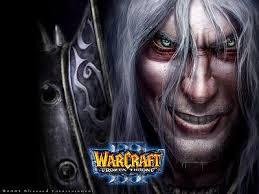Dear,
I began playing World of Warcraft in 2004, and she has been the most memorable video game of my life. World of Warcraft wasn’t just a game, it was a living and breathing world populated by a dear community of friends.
No matter who you were offline, in this world of Warcraft, you were one of its fantastic inhabitants writing your own story. I was a Night Elf priest who traveled across this beautifully massive world awed by the Stoicism of Desolace, the lost pride of the Arathi Highlands, and the subtle quant of Feralas.
WoW didn’t force set objectives, instead, it was an open world to explore and endear. You could spend your days exploring the niches of each zone or become the Guild Master that led the attack on Blackwing Lair. Other than the implied goal of growing stronger to face greater challenges, your freedoms within game were rarely explicitly limited. World of Warcraft was a world first, and a game second.
Though implicitly, the goal was to level to 60 to defeat raid challenges, but for many, 60 was a lofty end goal, rather than a prerequisite to start enjoying WoW. For most people, leveling to 60 took over 200 hours, but it was 200 hours well spent. I took my time enrapturing myself in this foreign and beautiful land, flying from Stormwind to Booty Bay and riding the boat from Menethil Harbor to Theramore Isle. Questing wasn’t tuned to efficiently gain levels; it was built to experience a beautiful world. That’s what made WoW fun. We were explorers making a stake in a foreign land.
Back then, WoW was a genuinely hard game, but it made triumphs so much more memorable. In World of Warcraft, you aren’t some super hero that could trump all challenges; you were an aspect of a world much larger than you. Because the world was a difficult place, it made accomplishments matter. I remember killing Princess Theredras for the first time after four attempts: two party members were dead and the rogue had to bandage our tank because I went OOM half way through the fight. It’s moments like these that you remember, because they were, in a sense, epic.
The inconveniences that were eliminated in recent iterations were keen aspects that made WoW feel like a world, instead of just a computer game. Though frustrating at times, I will never forget that hour run to reach Scarlet Monastery, or missing the boat to Teldrassil by 10 seconds. Though inconvenient, that’s what made WoW so memorable. It’s like complaining about how Baker Beach is an hour’s bus ride from Alamo Square, or missing the ferry to go to Larkspur.
Over the past five years, World of Warcraft has introduced many features to efficientize the user experience, but were they for the better? WoW became less like a world and more like a video game. The difficulties and nuances are what made WoW beautiful. If you look our lives, it’s not perfect; in fact, it’s far from it. But that’s okay. The imperfections add uniqueness to a repetitive and dull existence.
Most importantly, World of Warcraft was a community filled with peers, a bunch of nerds who found solace in Azeroth. It was game were you built friendships that lived on long after your subscription ran out. It was were an Orc and a Tauren who just met can quest for hours for the sake of hanging out. It was my social network. Now, everyone is so busy trying to level up or gear up, that we forget that the journey to 100 is as critical as endgame raiding. In fact, it’s why I play, the right to explore a world that is uniquely different.
Currently, World of Warcraft has become a dired effort to grind for better gear and optimize efficiency to kill bosses… to get even better gear. Remember a time, when you geared up to kill a boss, not killed a boss to get gear. Slowly, we forget what World of Warcraft is, a world with 8 million residents. As we rush to finish our Daily Dungeons, we turn this game into a daily chore.
World of Warcraft grew to the greatest game in the world because you were able to achieve amazing feats with a group of friends; but now, individuals focus more on optimizing personal DPS instead of defeating a boss. Being a good DPS doesn’t mean topping charts, it means doing what’s required to help your raid defeat the boss.
Instead of experiencing a world, we continually push to grow on some predetermined path that robs the user of experiencing of a world of Warcraft. This fact is especially apparent in the new zones. The whole game feels like you are directed from point A to Point B with little option to explore the world as you see fit. When all the quests and rewards line up so uniformly, why waste time exploring when you can just follow the Yellow Brick Road. In the end, World of Warcraft has slowly derided into a dull and repetitive task.
In the original World of Warcraft, the world was much less linear. There were loops and wavers from Point A to B; you had to travel across multiple zones to finish quest chains, and you had to scour each zone to discover all its hidden opportunities. WoW was built to prompt exploration, which made the world feel more alive than just a sequence of events. Because the world was unorganized, inconvenient, and uniquely endearing, it projected a feeling that Warcraft was an actual world, not a game optimized to waste time. When you log on, you are but one of the many citizens of this huge world; that’s why WoW succeeded and became the greatest game of the last decade.
Currently, World of Warcraft feels like pumping a handcar on a railroad. No matter how hard you pump, you’ll still end up at the same location. It’s not a world anymore, it’s a tunnel with a singular objective.
Warlords of Draenor comes out this week, and it’ll be ten years since World of Warcraft first graced us. It’s a fact that WoW is one of the greatest video games ever built, because it turned a fantasy into a living and breathing world.
For WoW to last, it needs to return the feeling of exploration and awe that encaptured us a decade ago. It needs to rethink its motto of efficiency, and remove its chain of quest hubs with unambiguous and directed objectives. Seriously, it’s not fun completing 100 quests where none of them are of any challenge. It’s just grinding.
The original 0-60 experience was both challenging and endearing. It was a journey across a vast world, encountering challenges that required strategy, execution, and more often than not, 10 more deaths than you wished for. Despite how easy WoW is now, this game still feigns a sense of achievement for subpar accomplishments.
WoW’s empire was built upon a genuine product, but since, Blizzard has been milking the same reputation ever since, As WoW reached its peak subscription metrics and subsequently dropped, the game made a dire shift to sustaining retention. After hitting a peak of 12 million subscribers, Blizzard believed that this metric was the expected, rather than a temporary inflated boom, no different from stock market hypes.
As subscription numbers returned to normalcy, executives made decisions to favor retention over quality. Instead of innovating, her focus shifted to better gear and inflated stats. However, as we have experienced over the last five years, such actions has led WoW to a slow and steady death as gamers emigrate year after year.
When World of Warcraft optimizes everything to some apparent mean, she lost the identity that made her beautiful. It’s the same motif that encompasses San Francisco’s Freemiuim game industry. We optimize a game towards metrics that don’t measure gameplay quality, but rather, revenue and retention.
Initially, World of Warcraft’s subscription was to help support the infrastructure costs needed to sustain this wonderful world. But now, the subscription reminds me more of the 100 gems for $5.99 packages in “Free to Play” mobile games. We’ll give you gear, stats, and marginal happiness; and in return, you’ll keep your $15 monthly subscription.
When the quality of a product depends on its revenue, it’s only reasonable that the product will shift to revenue optimization, but at what cost. Free to Play makes most of its revenue from the 1% of addicts that spend hundreds on virtual armor and gear. Though optimizations will increase short-term revenue, they destroy the long-term quality of the game; and eventually, most Free to Play games will lose this war of attrition.
World of Warcraft is based on subscriptions and thus Blizzard’s business goal is to optimize retention. Instead of making daring and unique changes, Blizzard has settled for repetitive daily quests that obligates users to come back for the hope of marginal improvements to their virtual loot. Though these changes increased retention in the short-run, Blizzard has been losing the war of attrition for the last 5 years.
Sometimes you just have to take a chance and do something different and unique; actions that might not yield immediate results could improve the game in the long-run. Something needs to change, because WoW is dying a slow and lingering death. It’s lost heart.
World of Warcraft is the middle-aged 45 year old going through a mid-life crisis. Ten years ago, he built an empire that encompassed the world, and now he looks from atop his ivory tower hoping that nothing exacerbates. But worlds change, and lives grow. He lost the drive that he once possessed, and World of Warcraft is the revenue generator that sustains Blizzard Entertainment as a viable corporation with thousands of employees.
World of Warcraft is fighting its inner battles, but it’s losing this war of attrition. If he know he is on the path to death, why not take a risk and make an effort to change the status quo again, like he did ten years ago.
Warcraft is no longer a world; it’s just another computer game.
I wish you find the heart and the soul that made World of Warcraft so beautiful.
I wish you the best
Sincerely,
Jason Zeng
















